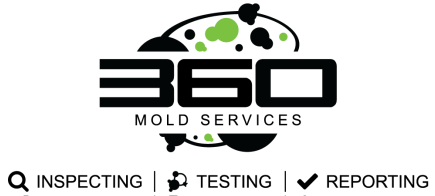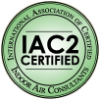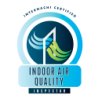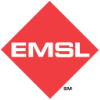CERTIFIED MOLD INSPECTION SERVICESOur professional and accurate mold inspections are critical for home and businesses where you suspect a possible mold problem. We take the time to prepare a customized report outlining the details of our findings to ensure they are fully understood. We strive to build friendly and trustworthy relationships with every client which is why we ONLY perform mold inspections and testing - mold remediation conflicts with these services which would not be in our clients' best interest.
MOLD INSPECTIONS & INDOOR AIR SAMPLINGMold and moisture problems within a building environment will not fix themselves. Roof leaks, foundation issues, poor site drainage, or leaky plumbing can start small but quickly create major problems. A proper mold inspection performed by 360 Mold Services will assist in identifying the source and the extent of any moisture or mold issues. This type of process requires a trained eye and the right equipment. Using our flashlight, our infrared (IR) thermal imaging camera, moisture meters and other equipment, we are able to identify the extent of damage and report how to address the important issues. We also provide mold & indoor air quality testing which allows us to determine the cause or specific location of hidden moisture issues and possible hidden mold growth areas.
WHAT TO EXPECT FROM YOUR MOLD INSPECTIONVisual Inspection: A thorough visual inspection is the starting point for every certified, professional mold assessment. Your certified mold inspector will be looking for conditions that are indicative or conducive to mold growth.
Digital Documentation: Documenting our findings through digital imaging is the easiest way for your certified mold inspector to relay their findings. We’ll take pictures of all the areas of concern so you see exactly what we saw during your mold inspection. Thermal Imaging: Infrared (IR) thermal imaging cameras allow us to detect temperature differences in (and often behind) building materials. Why is this important? Because damp or wet building materials are almost always cooler than dry materials – and it’s the temperature difference that the infrared (IR) thermal imaging camera detects. It’s an invaluable tool in the detection of moisture sources that can cause conditions which are conducive to mold growth. Moisture Mapping: Since mold needs moisture to develop and thrive, finding that source of moisture is very important. Moisture mapping basically allows us to locate building materials that are damp or wet enough to support mold growth. Testing for moisture also helps us determine if water leaks have been resolved or if they are actively leaking and can locate where water damage starts and stops. Air Quality Testing: Your certified mold inspector will typically take indoor air samples to determine if your indoor mold spore levels are higher than they should be. Ideally at least one sample will be taken outdoors as well to be used as a baseline or "control" sample. Surface Mold Testing: Is it just water staining, or is it mold? Surface testing with mold swabs or bio tape lifts will answer those questions. In many cases, surface testing isn't necessary if mold growth is visibly obvious. Inner Wall Mold Testing: When mold is suspected behind a wall or above a ceiling, those areas should be tested. Today’s mold testing technologies and techniques allow certified mold inspectors to take air and surface samples from wall or ceiling voids without causing unnecessary damage to the property. Mold Assessment Report: Within 1 to 3 business days after your certified mold inspection, your certified mold inspector will compile all of their findings and generate an easy to understand mold assessment report complete with an interpretation of lab reports and written strategies. Scope of Work: If required, your certified mold inspector will design a mold remediation plan specific to your property. Your scope of work will include cleanup suggestions as well as preventative measures that are necessary to keep mold from returning. Post-Remediation Clearance Testing: This is a certified mold inspection after the mold remediation is completed by a professional, certified Mold Remediation Contractor (MRC). It’s important to know that the job was done right – the first time. Post-remediation clearance testing will determine if cleanup efforts were successful or if further cleanup is necessary. |
|
If you have any questions about our mold inspection services, we would be happy to go through the process with you over the phone.
Call us Anytime at (226) 972-6440
Call us Anytime at (226) 972-6440
















